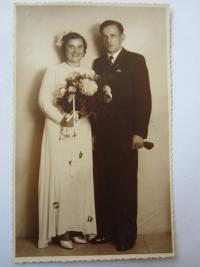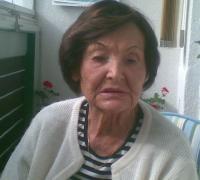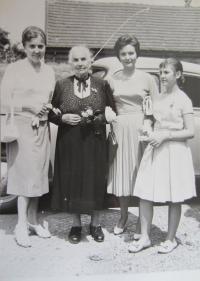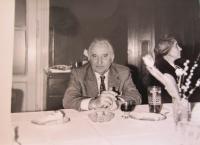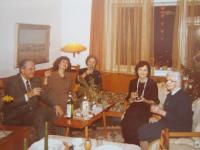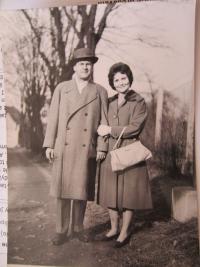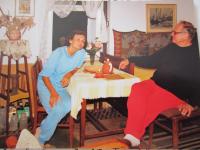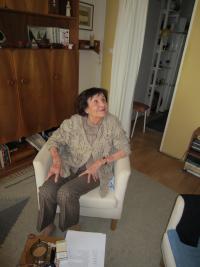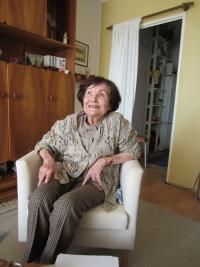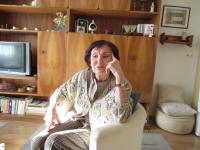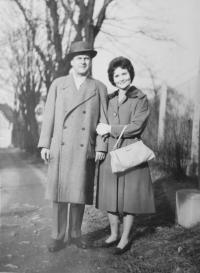If one person were to get to heaven, it should be my sister

Stáhnout obrázek
Věra Šmejkalová, née Sekáčová, was born June 27, 1927. She had two older sisters - Jarmila and Josefa, and a brother. Their father died at the age of 45, Věra was five years old at that time. Since then they had been brought up by their mother Anna Sekáčová. Josefa married Ludvík Vaněk, who was a member of the Sokol movement. During the war the husband and wife became active members of the Sokol resistance organization called Jindra. During the terror following Heydrich‘s assassination (May 27, 1942) in July 1942 the Vaněks were hiding MUDr. Břetislav Lyčka in their house in Ouběnice near Tomice. Lyčka had provided medical assistance to the injured paratroopers Kubiš and Gabčík in the crypt of the Orthodox church of Saints Cyril and Methodius on Resslova Street. He was hiding in the basement of the Vaněks‘ house for two weeks. On July 21, 1942 another member of the resistance movement, teacher F. Kotrba, was supposed to bring him false documents and take him to another hiding place. He was however arrested by the Gestapo at the railway station in Tomice and forced to lead them the Vaněks‘ house. He entered the house to fetch Lyčka, and both committed suicide by shooting themselves in the basement. Josefa Vaňková was arrested immediately after she came home; she was in the fifth month of pregnancy. The Gestapo then went directly to the factory near Bystřice u Benešova to arrest her husband who was working there as a foreman. The Vaněks were deported to Terezín. Ludvík Vaněk was subsequently transported to Mauthausen, where he was executed on October 24, 1942. Pregnant Josefa was taken to the prison in Prague-Pankrác, where she gave birth to her son Ludvík on November 2, 1942. A German wardress passed this information on to the Sekáč family. On January 26, 1943, Josefa was sent to the gas chambers in Mauthausen. The family was intensely searching for their child throughout the war. They eventually found Ludvík in March 1945 in a German military hospital by the Thomayer hospital in Prague. The Sekáč family was allowed to take Ludvík on May 11, 1945. A birth certificate had to be issued for the boy, because he had not been registered anywhere. He only had an iron plate with him, bearing his number: GT 57. Ludvík was brought up by his grandmother, and his aunt Věra Šmejkalová was also helping in taking care of him. His parents were decorated with awards in memoriam.
